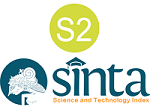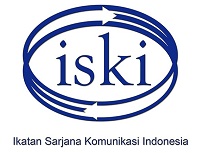Enhancing digital engagement: The importance of media literacy in social media
Abstract
Background: The rapid growth of social media platforms has fundamentally changed how individuals access, create, and share information. These platforms now serve as key sources of news, entertainment, and social engagement, presenting advantages and challenges to people and communities. As social media influences public discussions and the dissemination of information, the importance of media literacy in effectively navigating the intricate digital media environment has become increasingly clear. Purpose: This study investigates the relationship between social media dynamics and media literacy, focusing on how users engage with content, develop their viewpoints, and participate in online dialogues. Methods: This research employs a multidisciplinary approach, drawing insights from communication studies, psychology, and information science to thoroughly examine the changing media landscape and its implications for democratic participation. Results: The results showed that the majority of respondents used social media daily, mainly for entertainment, while only a minority felt comfortable openly voicing opinions. Social media influences democratic engagement, affecting political and social participation, although opinion change is still variable. Media literacy awareness is low, with most relying on the credibility of sources or seeking supporting information to verify content. Conclusion: Media literacy is essential for countering disinformation, promoting critical thinking, and encouraging responsible digital citizenship. Implications: This research emphasises the importance of media literacy education to improve critical thinking, counteract disinformation, and encourage responsible digital citizenship to create a more aware and participatory democratic society.
Keywords
Full Text:
PDFReferences
Alodat, A. M., Al-Qora’n, l. f., & abu hamoud, m. (2023). social media platforms and political participation: A study of jordanian youth engagement. Social Sciences, 12(7). https://doi.org/10.3390/socsci12070402
Anderson, M., & Jiang, J. (2018). Teens, social media and technology 2018. Pew Reseacrh Center. https://www.pewresearch.org/internet/2018/05/31/teens- social-media-technology-2018/
Austin, E. W., & Pinkleton, B. E. (2016). The viability of media literacy in reducing the influence of misleading media messages on young people’s decision-making concerning alcohol, tobacco, and other substances. In Current Addiction Reports (Vol. 3, Issue 2, pp. 175–181). Springer. https://doi.org/10.1007/s40429-016-0100-4
Cho, H., Cannon, J., Lopez, R., & Li, W. (2024). Social media literacy: A conceptual framework. New Media and Society, 26(2), 941–960. https://doi.org/10.1177/14614448211068530
Choi, M. (2016). A concept analysis of digital citizenship for democratic citizenship education in the internet age. Theory and Research in Social Education, 44(4), 565–607. https://doi.org/10.1080/00933104.2016.1210549
Cohen, L., Manion, L., & Morrison, K. (2018). Research methods in education (8th ed.). Routledge. https://doi.org/https://doi.org/10.4324/9781315456539
Creswell, J. W., & Creswell, J. D. (2018). Research design: Qualitative, quantitative, and mixed methods approaches (5th ed.). SAGE Publications, Inc.
Curran, M. B. F. X., & Ribble, M. (2017). P-20 Model of digital citizenship. In New directions for student leadership, 2017(153), 35–46. https://doi.org/10.1002/yd.20228
Fardiah, D., Darmawan, F., Rinawati, R., Supaat, V. E. M., & Hadnansyah, E. (2024). Digital transformation through electronic-based government system performance as public relations strategy. PRofesi Humas, 9(1), 23–48. https://doi.org/10.24198/prh.v9i1.56095
Figueira, Á., & Oliveira, L. (2017). The current state of fake news: Challenges and opportunities. Procedia Computer Science, 121, 817–825. https://doi.org/10.1016/j.procs.2017.11.106
GlobalWebIndex. (2024). The ultimate social media trends report. Www.Gwi.Com. https://www.gwi.com/reports/social
Hamadi, M., El-Den, J., Narumon Sriratanaviriyakul, C., & Azam, S. (2021). A social media adoption framework as pedagogical instruments in higher education classrooms. E-Learning and Digital Media, 18(1), 55–85. https://doi.org/10.1177/2042753020950869
Hatamleh, I. H. M., & Aissani, R. (2024). Investigating the dynamics of social media addiction and well-being in Jordan: An empirical analysis. Social Sciences, 13(7). https://doi.org/10.3390/socsci13070351
Hayvon, J. C. (2024). Preventing trivialization of global social justice discourse: A framework of critical social media literacy. International Journal of Educational Reform. https://doi.org/10.1177/10567879241252398
Hutchison, A. C., Woodward, L., & Colwell, J. (2016). What are preadolescent readers doing online? an examination of upper elementary students’ reading, writing, and communication in digital spaces. Reading Research Quarterly, 51(4), 435–454. https://doi.org/10.1002/rrq.146
Jeong, S. H., Cho, H., & Hwang, Y. (2012). Media literacy interventions: A meta-analytic review. Journal of Communication, 62(3), 454–472. https://doi.org/10.1111/j.1460-2466.2012.01643.x
Kaur, G., Bonde, U., Pise, K. L., Yewale, S., Agrawal, P., Shobhane, P., Maheshwari, S., Pinjarkar, L., & Gangarde, R. (2024). Social media in the digital age: A comprehensive review of impacts, challenges and cybercrime. Engineering Proceedings, 62(1). https://doi.org/10.3390/engproc2024062006
Khan, M. L., & Idris, I. K. (2019). Recognise misinformation and verify before sharing: a reasoned action and information literacy perspective. Behaviour and Information Technology, 38(12), 1194–1212. https://doi.org/10.1080/0144929X.2019.1578828
Kleemans, M., Daalmans, S., Carbaat, I., & Anschütz, D. (2018). Picture perfect: The direct effect of manipulated instagram photos on body image in adolescent girls. Media Psychology, 21(1), 93–110. https://doi.org/10.1080/15213269.2016.1257392
Latif, A. S. S. S., Zambri, W. A. A. M., Imma, D., & Kamal, S. (2023). Media literacy and digital citizenship in the era of social media. International Journal of Academic Research in Business and Social Sciences, 13(11). https://doi.org/10.6007/ijarbss/v13-i11/19392
Limilia, P., & Fuady, I. (2021). Literasi media, chilling effect, dan partisipasi politik remaja. Jurnal Kajian Komunikasi, 9(1), 40-52. https://doi.org/10.24198/jkk.v9i1.31939
Literat, I., & Kligler-Vilenchik, N. (2019). Youth collective political expression on social media: The role of affordances and memetic dimensions for voicing political views. New Media and Society, 21(9), 1988–2009. https://doi.org/10.1177/1461444819837571
Livingstone, S., & Third, A. (2017). Children and young people’s rights in the digital age: An emerging agenda. In New Media and Society (Vol. 19, Issue 5, pp. 657–670). SAGE Publications Ltd. https://doi.org/10.1177/1461444816686318
Marchi, R. (2012). With Facebook, blogs, and fake news, teens reject journalistic “objectivity.” Journal of Communication Inquiry, 36(3), 246–262. https://doi.org/10.1177/0196859912458700
Martens, H., & Hobbs, R. (2015). How media literacy supports civic engagement in a digital age. Atlantic Journal of Communication, 23(2), 120–137. https://doi.org/10.1080/15456870.2014.961636
National Literacy Trust. (2019, June 5). Children and young people’s reading in 2017/18. Literacytrust.Org.Uk. https://literacytrust.org.uk/research-services/research-reports/children-and-young-peoples-reading-201718/
Rahmawan, D., Narotama Mahameruaji, J., & Anisa, R. (2019). Pengembangan konten positif sebagai bagian dari gerakan literasi digital. Jurnal Kajian Komunikasi, 7(1), 31–43. https://doi.org/10.24198/jkk.v7i1.20575
Taherdoost, H. (2016). Sampling methods in research methodology; how to choose a sampling technique for research. In International Journal of Academic Research in Management (IJARM), 5(2). https://ssrn.com/abstract=3205035
We Are Social & Hootsuite. (2023). Digital 2023 global overvoew report. Wearesocial.Com. https://wearesocial.com/id/blog/2023/01/the-changing-world-of-digital-in-2023-2/
Zhang, H., & Zhu, C. (2016). A study of digital media literacy of the 5th and 6th grade primary students in Beijing. Asia-Pacific Education Researcher, 25(4), 579–592. https://doi.org/10.1007/s40299-016-0285-2
DOI: https://doi.org/10.24198/jkk.v13i1.59884
Refbacks
- There are currently no refbacks.
Copyright (c) 2025 Aditi Yadav

This work is licensed under a Creative Commons Attribution-NonCommercial-ShareAlike 4.0 International License.
Jurnal Kajian Komunikasi Indexed by:
Editorial Office of Jurnal Kajian Komunikasi:
Faculty of Communication Science, Universitas Padjadjaran
Jl. Raya Bandung-Sumedang Km. 21 Jatinangor, Sumedang 45363, Indonesia
WA: +6282316731181 (Chat Only)
Telephone: +62227796954
Faxmile: +62227794122
E-mail: jurnal.kajian.komunikasi@unpad.ac.id
Jurnal Kajian Komunikasi Supervised by:











